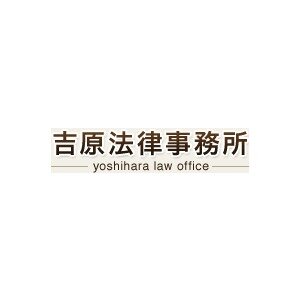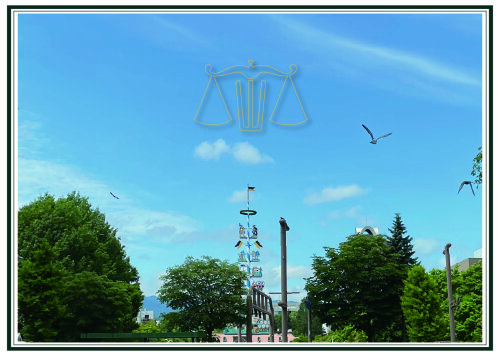Best Car Accident Lawyers in Sapporo
Share your needs with us, get contacted by law firms.
Free. Takes 2 min.
List of the best lawyers in Sapporo, Japan
About Car Accident Law in Sapporo, Japan
In Sapporo, Japan, car accidents and the resulting legal matters are governed by the country's national laws, specifically the Road Traffic Act and the Civil Code. These laws outline the responsibilities and liabilities of drivers involved in traffic accidents. In the case of a car accident, the legal process often involves negotiations with insurance companies and possibly litigation to resolve disputes over damages and liability. Determining fault is a critical aspect, and compensation is calculated based on the degree of negligence attributed to each party involved.
Why You May Need a Lawyer
Legal assistance can be crucial in the following situations:
- Understanding compensation claims: A lawyer can help you understand your rights to claim compensation for damages, both physical and property-related.
- Disputing fault or negligence: If you believe the assessment of fault is incorrect or unjust, a lawyer can assist in disputing this.
- Negotiating with insurance companies: Lawyers are skilled in negotiations, ensuring you receive what you are entitled to from your insurance provider or the provider of the other party.
- Court representation: If your case goes to court, a lawyer can represent you and advocate for your best interests.
Local Laws Overview
In Sapporo, as within the rest of Japan, local laws focus heavily on the prevention of accidents, standardizing post-accident procedures, and outlining the process of claiming compensation. Key aspects include:
- Mandatory automobile insurance (Jibaiseki Hoken) and optional vehicle insurance (Nin'i no Jidosha Hoken).
- The use of a point system that records traffic violations and can lead to license suspension or revocation.
- Strict procedures for documenting an accident scene, exchanging information, and reporting accidents to the police and insurance companies.
- Compensation calculations based on the degree of fault and negligence, often determined through official accident reports and insurance companies' assessment.
Frequently Asked Questions
What should I do immediately after a car accident in Sapporo?
Ensure everyone's safety, call an ambulance if needed, notify the police, exchange information with the involved parties, and document the scene. Contact your insurance company as soon as possible.
Is it necessary to report all car accidents to the police in Sapporo?
Yes, you must report car accidents to the police, especially when there's property damage or injury. Failure to report can result in legal consequences.
How is fault determined in a car accident in Sapporo?
Fault is usually determined based on the police report, witness statements, and evidence from the scene. Insurers play a significant role in this process.
How long do I have to file a claim after a car accident?
For insurance claims, deadlines may vary by policy, but generally, you should file as soon as possible. For civil lawsuits, the statute of limitations is often three years from the date of the accident.
Can I claim compensation if I was partially at fault?
Yes, compensation is often allocated based on the percentage of fault. Even if partly at fault, you can still receive compensation proportionate to the other party's level of negligence.
What types of damages can I claim after a car accident?
You can claim compensation for medical expenses, property damage, lost wages, and, in some cases, pain and suffering.
Do I need a lawyer to negotiate with insurance companies?
While not mandatory, a lawyer can navigate the complexities of insurance negotiations and ensure your rights are protected.
Can a foreigner receive compensation for an accident in Sapporo?
Yes, foreigners have the same rights to compensation as Japanese citizens, provided they have the relevant insurance.
What if the accident is with an uninsured motorist?
If you're involved in an accident with an uninsured motorist, you can still claim compensation through your own insurance or via the Japan Automobile Federation (JAF).
Should I accept the insurance company’s first offer of compensation?
It is advisable to consult with a lawyer before accepting any offer, as initial proposals may not fully cover the extent of your damages and losses.
Additional Resources
For additional assistance, you can reach out to:
- The Sapporo Traffic Accident Consultation Center, which provides free information about traffic accidents.
- The Japan Automobile Federation (JAF) for roadside assistance and general advice.
- The Hokkaido Bar Association, which can refer you to a qualified lawyer.
- The local police department for a copy of the accident report, if needed.
Next Steps
If you require legal assistance in the event of a car accident in Sapporo, follow these steps:
- Contact a local attorney experienced in traffic accident law.
- Gather all relevant documentation, including the accident report, medical records, and any communication with insurance companies.
- Discuss your situation with the lawyer to understand your options and strategize your next steps.
- Follow your lawyer’s advice on negotiations, settlement, or court proceedings, if necessary.
Lawzana helps you find the best lawyers and law firms in Sapporo through a curated and pre-screened list of qualified legal professionals. Our platform offers rankings and detailed profiles of attorneys and law firms, allowing you to compare based on practice areas, including Car Accident, experience, and client feedback.
Each profile includes a description of the firm's areas of practice, client reviews, team members and partners, year of establishment, spoken languages, office locations, contact information, social media presence, and any published articles or resources. Most firms on our platform speak English and are experienced in both local and international legal matters.
Get a quote from top-rated law firms in Sapporo, Japan — quickly, securely, and without unnecessary hassle.
Disclaimer:
The information provided on this page is for general informational purposes only and does not constitute legal advice. While we strive to ensure the accuracy and relevance of the content, legal information may change over time, and interpretations of the law can vary. You should always consult with a qualified legal professional for advice specific to your situation.
We disclaim all liability for actions taken or not taken based on the content of this page. If you believe any information is incorrect or outdated, please contact us, and we will review and update it where appropriate.










